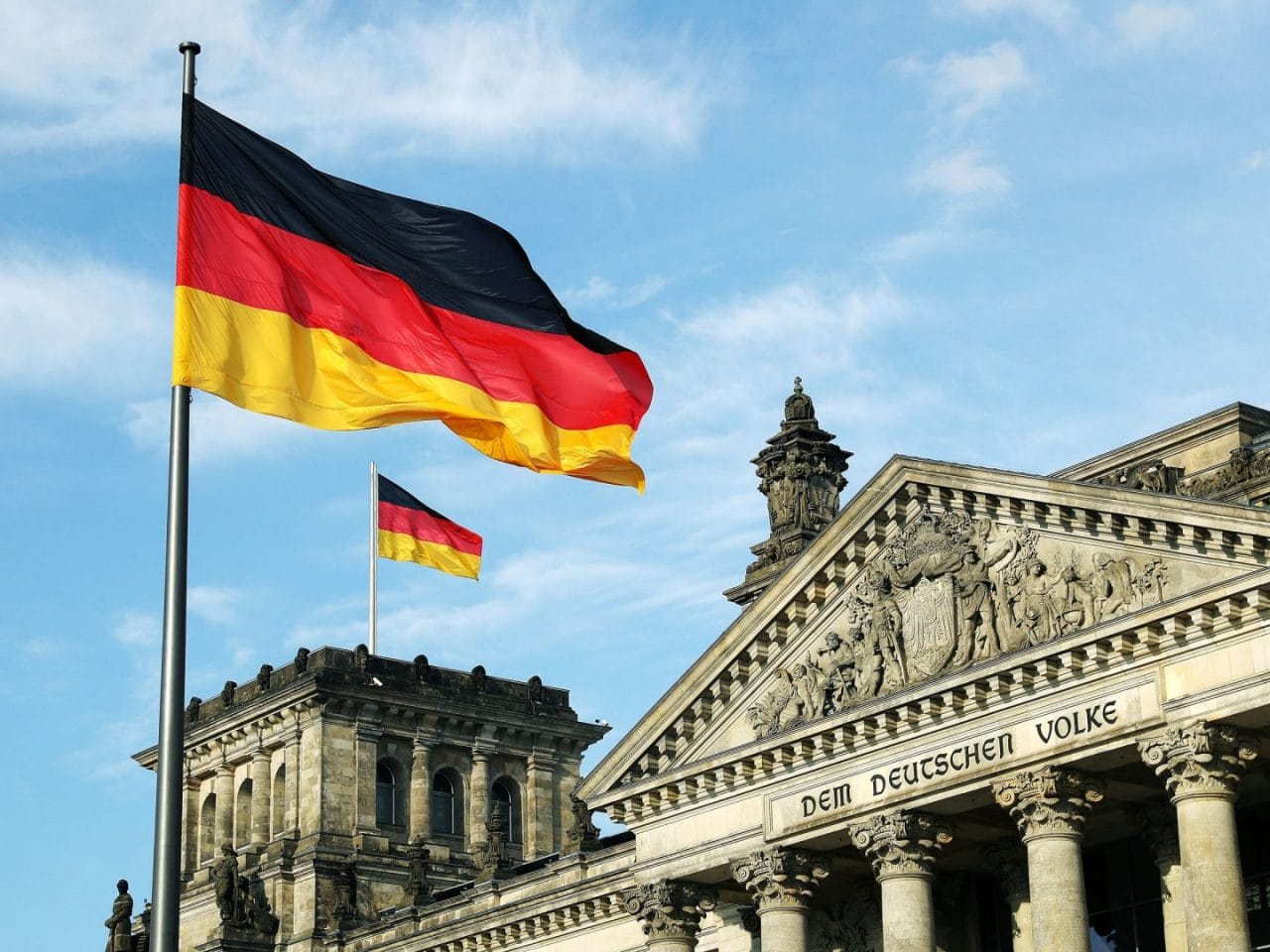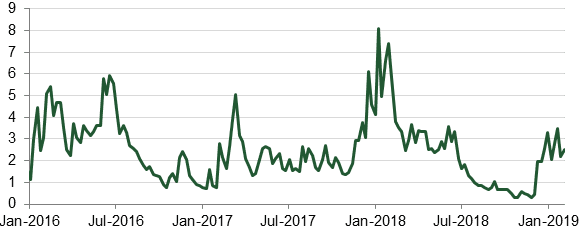
Germany has held the media spotlight for all the wrong reasons lately, as weak industrial production and retail data have dominated the headlines. Now, the fourth largest economy in the world (and the largest in Europe) has just avoided a technical recession – two consecutive quarters of negative growth – with a flat growth rate in the October-December quarter, following a 0.2% contraction in July-September.
Despite the relatively good news, Germany faces troubles ahead amidst its inability to boost their economy: they have failed to post any growth since June. For the whole year, Destatis, the Germany statistics body summarised that after a dynamic start into the first half of the year (+0.4% in the first quarter, +0.5% in the second quarter), a small dip (-0.2% in the third quarter, 0.0% in the fourth quarter) was recorded in the second half of the year. Overall, for the whole year of 2018, this was an increase of 1.4% (calendar adjusted: 1.5%). Hence growth was slightly smaller than reported in January.
How this has happened? We have asked expert Nikki Howes, Investment Associate at Heartwood Investment Management, the asset management arm of Handelsbanken in the UK, to shed some light onto Germany’s economic problems.
“Some of the most likely culprits are well-publicised issues. These include the knock-on effects of slowing Chinese growth, trade war concerns, and the impact of new emissions regulations. However, one less well-known factor has almost certainly played a part: the water levels in the river Rhine.

So, what do Rhine water levels and German growth have in common? They both appear to have fallen in the second half of 2018. Over the summer and into the autumn, the Rhine’s water depth reached levels last seen in the 1920s, creating significant challenges for its use as a transport channel. Since the river is essential for the movement of goods within Germany, supply chain issues emerged almost immediately, including a shortage of imported raw materials and commodities – especially challenging for Germany’s flagship industrial and manufacturing sectors as well as German households.”
In fact, the weather has played its role into bringing Germany’s economy to an almost technical recession. Germany suffered some pretty devastating flooding in 2018, causing several fatalities and forcing thousands to leave their homes. That disruption hasn’t helped the economy.
Likewise, another important factor has been the car woes and the recent scandals surrounding major carmakers. The Volkswagen diesel emissions scandal is still reverberating around Germany’s auto sector. Carmakers now have to meet tougher pollution tests, creating a backlog of models waiting to be tested and approved, and a backlog at the factories.
Nonetheless, Germany’s Danske Bank did mention to other good news rather than the technical recession headline. For them, “domestic demand did fine, as both private consumption, government consumption & investments rose in Q4. Details clearly better than headline.”

Hernaldo Turrillo is a writer and author specialised in innovation, AI, DLT, SMEs, trading, investing and new trends in technology and business. He has been working for ztudium group since 2017. He is the editor of openbusinesscouncil.org, tradersdna.com, hedgethink.com, and writes regularly for intelligenthq.com, socialmediacouncil.eu. Hernaldo was born in Spain and finally settled in London, United Kingdom, after a few years of personal growth. Hernaldo finished his Journalism bachelor degree in the University of Seville, Spain, and began working as reporter in the newspaper, Europa Sur, writing about Politics and Society. He also worked as community manager and marketing advisor in Los Barrios, Spain. Innovation, technology, politics and economy are his main interests, with special focus on new trends and ethical projects. He enjoys finding himself getting lost in words, explaining what he understands from the world and helping others. Besides a journalist he is also a thinker and proactive in digital transformation strategies. Knowledge and ideas have no limits.




































